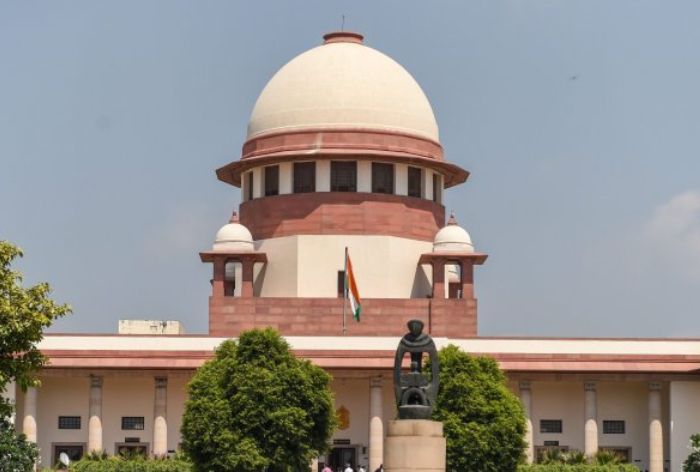The Supreme Court of India has turned down Central Government’s request to defer hearing of petitions related to Sedition Law Challenge and Chief Justice of India DY Chandrachud has referred the case to a larger bench.

New Delhi: The Supreme Court of India has turned down the Central Government’s request to defer the hearing related to the Sedition Law Challenge due to the introduction of a new bill in the Parliament which may replace the Indian Penal Code (IPC). Apart from turning down Centre’s request, Chief Justice of India DY Chandrachud has referred this case to a larger bench with at least five judges; the case was initially with a three-judge bench headed by the CJI. The bench has said that the petitions are required to be sent to a larger bench because in 1962, the provision was upheld by a five-judge constitution bench in the case ‘Kedar Nath Singh v. State of Bihar’.
Supreme Court Refers Sedition Law Challenge Petitions To Larger Bench
As mentioned earlier, the Supreme Court has referred the petitions challenging IPC Section 124A (Sedition Law) to a larger bench with at least five judges. The current bench of CJI DY Chandrachud, Justice JB Pardiwala and Justice Manoj Misra have pointed out in their order that the Kedar Nath case was decided on the basis of the then-prevalent narrow understanding of fundamental rights and that case was only examined by the angle of Article 19 of the Constitution of India. A bench which is smaller than the bench that dealt with the Kedar Nath case would not be appropriate to doubt or overrule the existing judgement.
SC Turns Down Centre’s Request To Defer Hearing
Along with referring the case to a larger bench, the CJI-led Supreme Court Bench has also turned down the request put forth by the Central Government to defer the hearing of this case. The Centre had requested that since a new Bill aimed at replacing the Indian Penal Code is pending in the Parliament, the hearings concerning the Sedition Law must be deferred.
Turning down this request, the bench has said that if the new Bill is passed and it becomes a law, it will not affect the existing cases of Sedition under Section 124A because the new law will can only apply prospectively.
